Controlling Kazakh Nationalism 20 Years Later: Zheltoksan, Tengiz, Norman Foster, and Russian Television
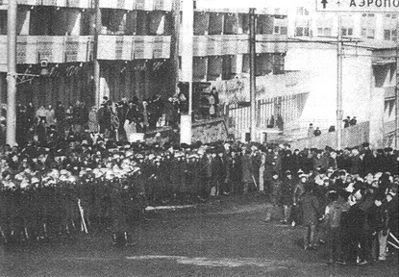
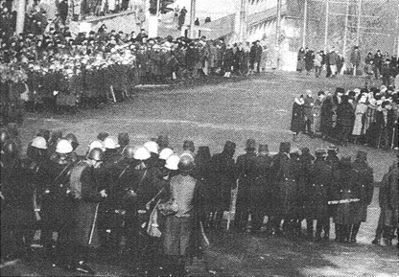
Pictures from the December 1986 Ethnic Kazakh Student Protests in Alma-Ata
Twenty years this past weekend, an event took place in Almaty, Kazakhstan that has often been described as the beginning of the end of the Soviet Union. After Moscow had removed an ethnic Kazakh named Dinmukhamed Kunayev from the position of First Secretary of the Communist Party of the Kazakh SSR and replaced him with a Russian by the name of Gennady Kolbin, protests erupted in the capital of the republic, Alma-Ata. Thousands of ethnic Kazakh students took to the streets in an unprecedented show of ethnic nationalism and anti-Russian sentiment in Central Asia as they called for the reinstatement of an ethnic Kazakh to lead their republic. While the events that followed remain somewhat murky, the protests were forcibly suppressed, people were killed (maybe as many as 250), hundreds of protesters were arrested, and many more were expelled from University.
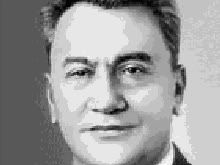
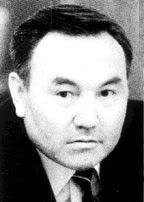
Kunayev (left) and a young Nazarbayev (right)
While he was then the second in command of the Communist Party in the republic, the ruling President of Kazakhstan, Nursultan Nazarbayev, over the last fifteen years has vacillated between claiming to have supported the students’ protests and trying to muffle discussion of the events all together. Some suggest that Nazarbayev’s reticence to celebrate the events of December 1986 (referred to locally as Zheltoksan) points to his involvement in the suppression of the protests. While this could indeed be true, President Nazarbayev also has another reason to “downplay” this part of Kazakhstan’s recent history—he wants to control the phenomenon of Kazakh nationalism. Aside from any fears that Nazarbayev may have of nationalism due to his political education in the Soviet Communist Party, he also knows that the people who have benefited the least from the economic accomplishments of post-Soviet Kazakhstan are the ethnic Kazakh working class and rural poor. This is also the population that could most easily be mobilized against him by a renaissance in Kazakh nationalism.
In the place of nationalism, Nazarbayev has tried to build a different ideology for Kazakhstan based on “international harmony” and “interfaith dialogue.” The new symbol of this vision is the grand glass Pyramid of Peace commissioned from British architect Norman Foster, which now graces the skyline of Astana. Such monuments to the peaceful co-existence of peoples and religions in Kazakhstan, however, are mostly for external consumption and represent Nazarbayev’s vision of himself as a world leader more than they reflect the realities of life in Kazakhstan. The situation on the ground is quite different.
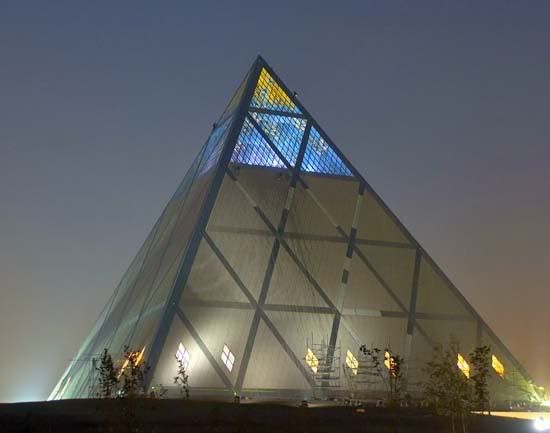
Norman Foster’s Pyramid of Peace in Astana
In Kazakhstan, the tensions that precipitated the events of 1986 remain, especially within the local ethnic Kazakh working class and rural poor. Two recent events highlighted this tension. The first was the outbreak of violent clashes between Kazakh and Turkish workers at the Tengiz oil fields. One only needs to look at the comments to my posts on that event (HERE and HERE)
to understand the deep-seated tensions that contributed to that violence. The second is a more recent event in the mostly Uyghur populated area of Chilik outside of Almaty. After a young Uyghur screamed “the state may be yours, but the land is ours” during a verbal conflict with a young Kazakh at a club, violence broke out between Kazakhs and Uyghurs inside the club, spreading to the streets and neighboring villages. It is exactly such Kazakhs – the workers in the Tengiz fields and the rural poor – who continue to feel the most strain in Kazakhstan’s new economy. In the meantime, they are wondering why they are on the short side of the financial stick in a country they proudly call Kazakhstan.
Most interestingly, this frustrated strata of the population has changed the focus of its nationalism since 1986. Russia is no longer seen as the external force limiting the mobility of local Kazakhs. Instead, the focus is against others who can supplant Russia as the punching bag for Kazakh nationalism. There are several reasons for this. Firstly, the Kazakhstan state has gone to great lengths to construct an ideology for its nation-state that glosses over its colonial and neo-colonial history with Russia. The government “downplays” events like last week’s 20th anniversary of Zheltoksan and limits discussion of Russian colonization of Kazakhstan. Instead of focusing on a struggle with Russian colonial rule, for example, the state-sponsored epic film “Nomad” represents the Kazakhs’ national awakening as being grounded in their battles with the Zhunggars, a now non-existent people. Secondly, Russian media has made incredible in-roads into Kazakhstan over the last fifteen years, helping to foster a general pro-Russian sentiment in the country. In addition to providing Kazakhstanis with Russian pop-stars, comedians, and sports heroes to emulate, Russian media offers a perspective on world news and geopolitics that portrays Kazakhstan, Russia, and the entire former Soviet Union as being in an unquestioned alliance against the greed and ambition of the capitalist west (sound familiar?).
While on the surface these efforts have helped to control Kazakh nationalism, especially as it relates to Russia and the history of Russian-Kazakh colonial relations, the issues that precipitated the events of December 1986 in Alma-Ata have not entirely disappeared. Kazakhstan continues to deal with the legacy of colonialism in the linguistic realm where Russian language still dominates the less widespread, yet national, language of Kazakh. Russia continues to try to dictate certain moves by Kazakhstan economically and politically, and ethnic Kazakhs continue to feel the wrath of Russian racism when they visit Russia.
To return to the 20th anniversary of Zheltoksan, the Kazakhstan government has obviously tried to limit the impact of this anniversary, especially on the growth of Kazakh nationalism. While Nazarbayev himself unveiled a new monument to Zheltoksan this past year, he did so quietly and several months before the actual anniversary. Furthermore, when opposition political groups tried to hold a commemorative ceremony at the monument this past weekend, security forces quickly stopped the action. In the meantime, a four day holiday has been called to commemorate the 15th anniversary of Kazakhstan’s independence, not the 20th anniversary of Zheltoksan. While opposition political parties, including the Social Democrats and the Real Ak Zhol party have issued statements this week about the 20th anniversary of Zheltoksan, the government seems to have succeeded once again in downplaying the event and encouraging a state-wide exercise in “forgetting” in lieu of remembrance.
Indeed, Nazarbayev has succeeded in controlling Kazakh nationalism during the last fifteen years, but the situation inside the country is not quite that which the government wishes to reflect in such monuments as Norman Foster’s glass pyramid in Astana. And, as questions about the succession of Nazarbayev continue to be raised over the next several years, it is very likely that there will emerge some politicians who will try to exploit the issue of Kazakh nationalism and spread the cracks that already exist on the surface of Nazarbayev’s glass pyramid of peace and harmony. The question is whether they can succeed in doing so without provoking the wrath of Russia.



7 Comments:
Very good analysis! Totally agree!
But Mr. Sean,
You are forgetting Nazarbayev's "Pocket Nationalist" card, for which is managing his nephew, Kairat Satybaldi. Look to Mr. Satybaldi for the "Kazakh nationalist" iron hand, to control this are. Principle of mnogosloinii pirog also works here!
There is one more reason to the shift in focus from ethnic Russians to other groups as the "the punching bag for Kazakh nationalism". This is Putin's call for Russians living in former Soviet Republics. As the Russian porverb goes, “No sacred place is left empty”.
Kazakh youth uprising in Almaty in 1986 was a turning point fall Red Empire USSR
These are actually wonderful some ideas in the blog. You have touched good quality points here. In whatever way continue writing.kazen
I got this blog site through my friends and when I searched this really there were informative articles at the place. edgekz
Interesting post here tinnitus
Post a Comment
<< Home